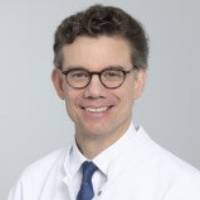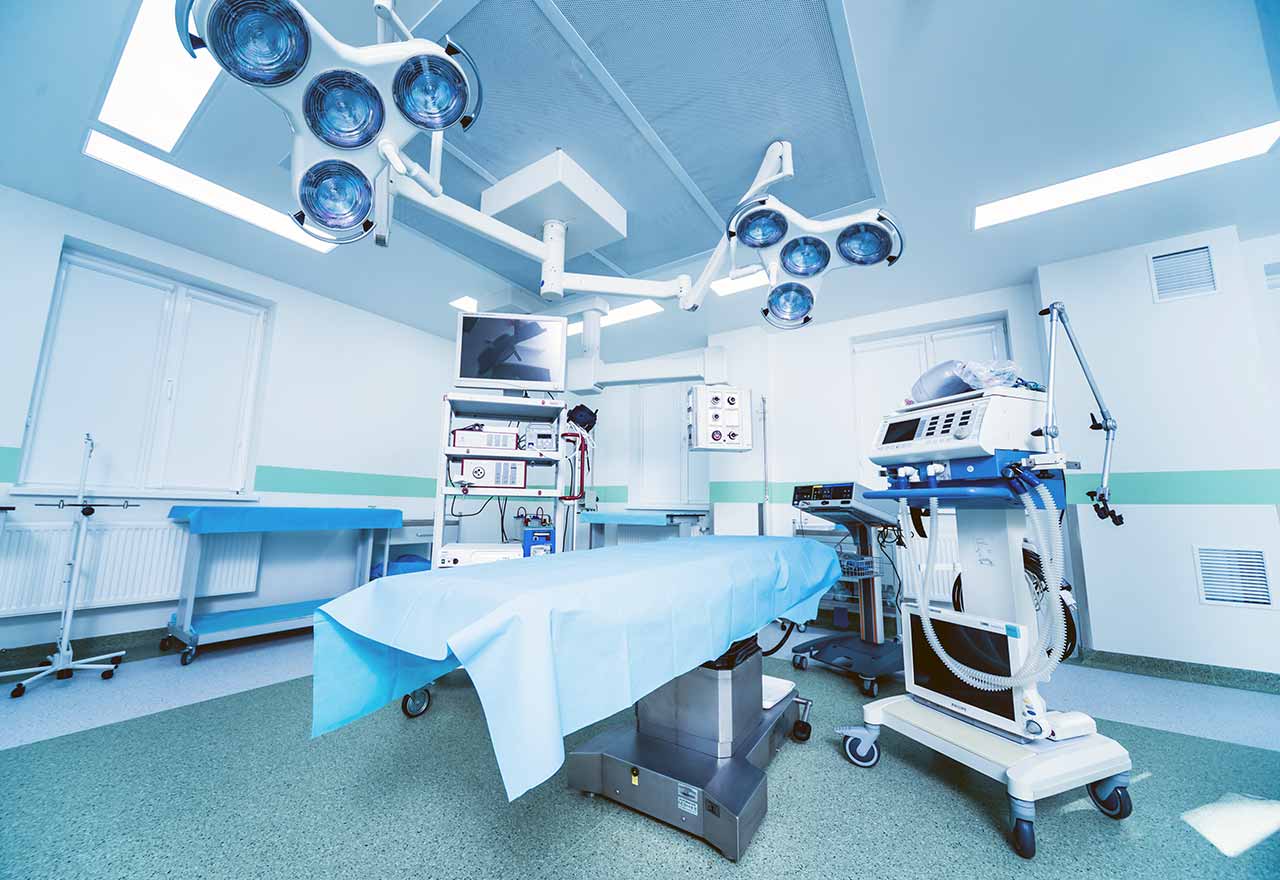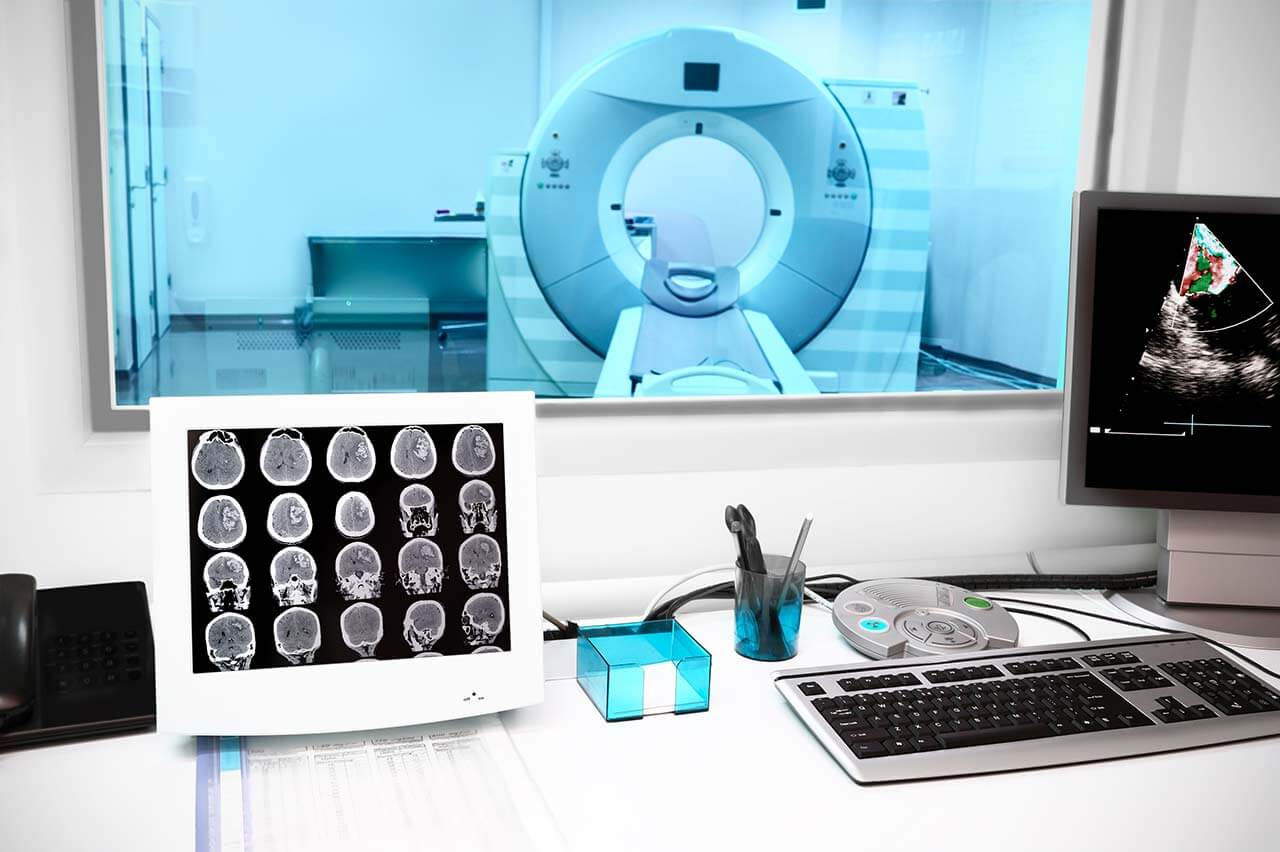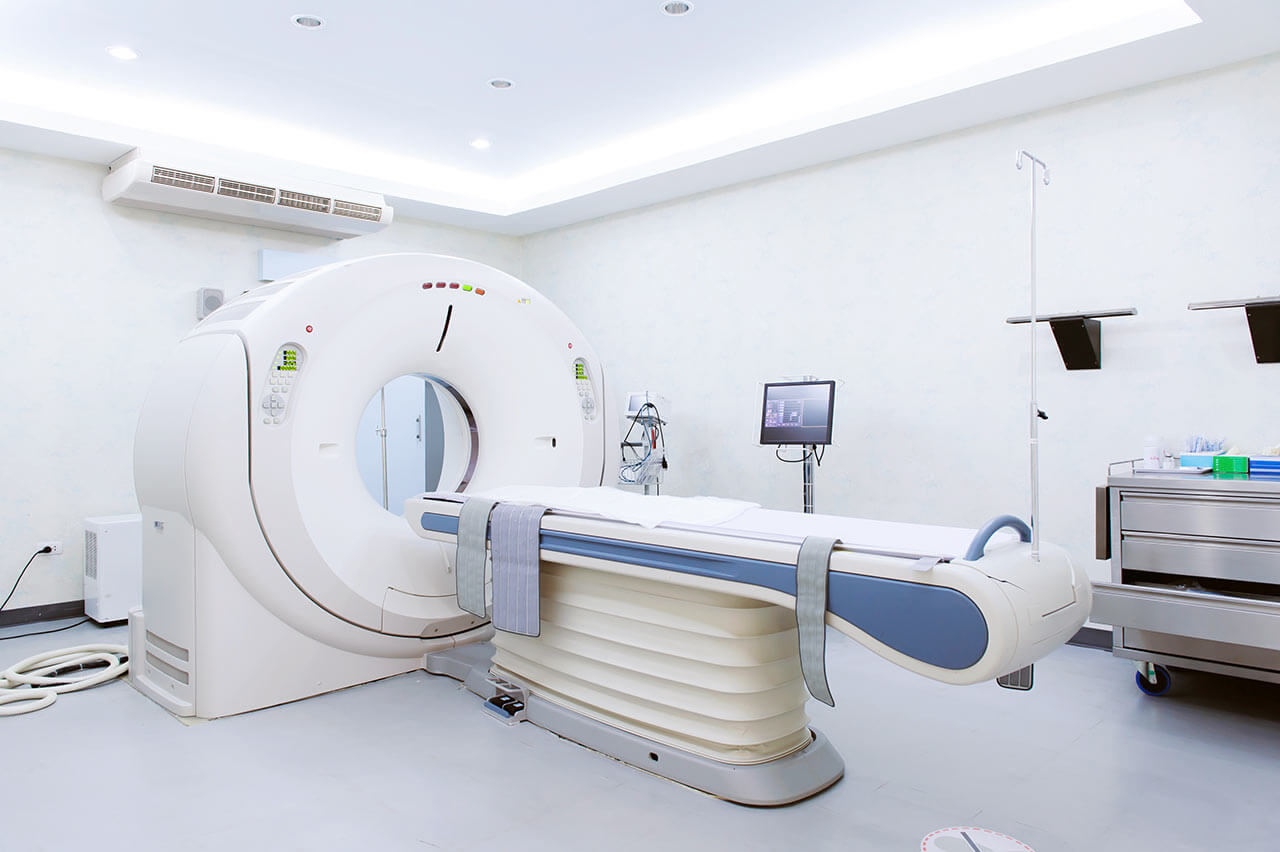
The program includes:
- Initial presentation in the clinic
- clinical history taking
- review of medical records
- physical examination
- laboratory tests:
- complete blood count
- general urine analysis
- biochemical analysis of blood
- inflammation indicators (CRP, ESR)
- indicators of blood coagulation
- anti-nuclear antibodies
- rheumatoid factor (RF)
- anti-cyclic citrullinated peptide (anti-CCP)
- x-ray scan
- ultrasound of joints
- MRI scan (on indication 1200 €)
- nursing services
- differential diagnosis of other diseases of the joints
- consultation of related specialists
- consultation of the chief physician and all leading experts
- development of individual treatment plan
- written statement
Required documents
- Medical records
Service
You may also book:
 BookingHealth Price from:
BookingHealth Price from:
About the department
The Department of Nephrology, Rheumatology and Endocrinology at the University Hospital Hamburg-Eppendorf offers a full range of diagnostic and therapeutic services in its areas of specialization. The department's team of nephrologists treats acute and chronic kidney failure, glomerulonephritis, urolithiasis, pyelonephritis, diabetic nephropathy, lupus nephritis, and arterial hypertension. Patients before and after kidney transplantation can also receive comprehensive care here. The department is the largest and one of the best Rheumatology Centers in Northern Germany, where patients with arthritis, collagenosis, vasculitis, gout, Bechterew's disease, fibromyalgia, and other pathologies can receive qualified medical care. Treatment of thyroid, parathyroid, adrenal and pituitary gland diseases, diabetes mellitus type 1 and 2, morbid obesity, and lipid metabolism disorders completes the therapeutic possibilities of the department. All treatment activities are performed in accordance with current clinical protocols, which helps to achieve the best result. The patients of the department are served by highly competent specialists with extensive clinical experience, for whom the priority is to provide effective treatment taking into account the individual needs of each patient. The Head Physician of the department is Prof. Dr. med. Tobias Huber.
The department specializes in the diagnosis and treatment of the entire spectrum of kidney diseases. The medical facility provides medical care to patients with acute and chronic kidney failure, glomerulonephritis, urolithiasis, pyelonephritis, diabetic nephropathy, lupus nephritis, arterial hypertension, and other kidney conditions. Upon admission to the department, the patient receives an individual consultation and referral for an examination. The standard diagnostic protocol for suspected nephrological disease includes extensive laboratory testing and ultrasound scans; magnetic resonance imaging and kidney biopsy are also often performed. Once a diagnosis has been made, the physician develops the most effective treatment plan for the patient. In most cases, drug therapy is sufficient to normalize kidney function. However, in complex clinical situations, medication is only one part of a comprehensive therapeutic regimen, and renal replacement therapy comes to the fore. The department has a well-equipped dialysis unit, where more than 12,000 dialysis procedures and extracorporeal blood purification procedures are performed each year. The specialists of the dialysis unit successfully perform hemodialysis, hemofiltration, hemodiafiltration, dialysis using the GENIUS system, peritoneal dialysis, lipid apheresis, plasmapheresis, and immunoadsorption. The therapeutic offer in the field of nephrology is complemented by high-quality medical care for patients before and after kidney transplant surgery in accordance with international medical standards.
The department's rheumatologists have exceptional expertise in the treatment of systemic and local connective tissue lesions. Special attention is given to the treatment of inflammatory joint disease, namely arthritis. Patients with all types of arthritis, including rheumatoid arthritis, spondyloarthritis, psoriatic arthritis, oligoarthritis, reactive arthritis, and enteropathic arthritis can receive medical care here. The specialists of the healthcare facility regularly treat patients with collagenoses (Sjogren's syndrome, systemic lupus erythematosus, scleroderma, mixed forms of collagenosis, dermatomyositis, and polymyositis) and vasculitides (polymyalgia rheumatica, Takayasu's arteritis, polyarteritis nodosa, and microscopic vasculitis). Rheumatic diseases cause many serious symptoms, the most common of which are pain and swelling of the affected joint, joint stiffness (especially in the morning), limited mobility, and increased fatigue. Diagnosis includes a general clinical examination, analysis of the patient's medical history, a series of laboratory tests (a rheumatoid factor test, inflammatory markers, antibody tests, etc.), and imaging studies (X-ray, ultrasound, CT, and MRI). First-line treatment is drug therapy with corticosteroids, biologics, nonsteroidal anti-inflammatory drugs, and other pain relievers. In addition to medication, therapeutic exercises, physiotherapy procedures, occupational therapy, cryotherapy, heat therapy, massage, and other therapeutic measures are recommended. In case of a complex course of rheumatism, the patient may require surgical treatment.
Treatment of endocrine disorders is an integral part of the clinical practice of the department. Patients with pathologies of the thyroid, parathyroid, adrenal, and pituitary glands are the main focus of attention. In addition, almost daily the specialists consult patients with diabetes mellitus type 1 and 2, perform insulin therapy and treatment with oral hypoglycemic agents. The endocrinologists of the department are also competent in the treatment of morbid obesity. Patients who have tried many diets and exercise programs without success usually come to the department. The role of the department's specialists is to identify the cause of weight gain and develop a comprehensive obesity treatment plan. Experienced endocrinologists, nutritionists, psychologists, and other experts work with the patient. Doctors make individualized recommendations for proper nutrition, prescribe comprehensive drug treatment, and conduct behavioral therapy. The department is one of the leading medical centers in Germany specializing in the treatment of morbid obesity using the endoscopic procedure for intragastric balloon placement in patients with a body mass index of 40 kg/m² and above. The extensive experience gained here in successfully performing such procedures allows physicians to effectively help patients with complex cases.
The department's main areas of clinical activity are as follows:
- Nephrology
- Diagnostics and treatment of acute and chronic kidney failure
- Diagnostics and treatment of glomerulonephritis
- Diagnostics and treatment of urolithiasis
- Diagnostics and treatment of pyelonephritis
- Diagnostics and treatment of diabetic nephropathy
- Diagnostics and treatment of lupus nephritis
- Diagnostics and treatment of arterial hypertension
- Rheumatology
- Diagnostics and treatment of arthritis
- Diagnostics and treatment of rheumatoid arthritis
- Diagnostics and treatment of spondyloarthritis
- Diagnostics and treatment of psoriatic arthritis
- Diagnostics and treatment of oligoarthritis
- Diagnostics and treatment of reactive arthritis
- Diagnostics and treatment of enteropathic arthritis
- Diagnostics and treatment of collagenoses
- Diagnostics and treatment of Sjogren's syndrome
- Diagnostics and treatment of systemic lupus erythematosus
- Diagnostics and treatment of systemic scleroderma
- Diagnostics and treatment of mixed forms of collagenoses
- Diagnostics and treatment of dermatomyositis
- Diagnosis and treatment of polymyositis
- Diagnostics and treatment of vasculitides
- Diagnostics and treatment of polymyalgia rheumatica
- Diagnostics and treatment of Takayasu's arteritis
- Diagnostics and treatment of periarteritis nodosa
- Diagnostics and treatment of microscopic vasculitis
- Diagnostics and treatment of gout
- Diagnostics and treatment of osteoporosis
- Diagnostics and treatment of Bechterew's disease
- Diagnostics and treatment of fibromyalgia
- Diagnostics and treatment of arthritis
- Endocrinology
- Diagnostics and treatment of thyroid and parathyroid diseases
- Diagnostics and treatment of Graves' disease
- Diagnostics and treatment of thyroid adenomas
- Diagnostics and treatment of Hashimoto's disease
- Diagnostics and treatment of diffuse goiter
- Diagnostics and treatment of nodular goiter
- Diagnostics and treatment of hyperparathyroidism
- Diagnostics and treatment of adrenal diseases
- Diagnostics and treatment of Cushing's syndrome
- Diagnostics and treatment of Conn's syndrome
- Diagnostics and treatment of pheochromocytoma
- Diagnostics and treatment of adrenal incidentaloma
- Diagnostics and treatment of Addison's disease
- Diagnostics and treatment of pituitary diseases
- Diagnostics and treatment of prolactinomas
- Diagnostics and treatment of Cushing's syndrome
- Diagnostics and treatment of acromegaly
- Diagnostics and treatment of hormonally inactive adenomas
- Diagnostics and treatment of hypopituitarism
- Diagnostics and treatment of diabetes mellitus types 1 and 2
- Diagnostics and treatment of morbid obesity
- Diagnostics and treatment of lipid metabolism disorders
- Diagnostics and treatment of familial hypercholesterolemia
- Diagnostics and treatment of hyperlipoproteinemia, including mixed form
- Diagnostics and treatment of secondary hyperlipoproteinemia in diabetes mellitus
- Diagnostics and treatment of familial chylomicronemia
- Diagnostics and treatment of hypobetalipoproteinemia
- Diagnostics and treatment of Tangier disease
- Diagnostics and treatment of thyroid and parathyroid diseases
- Diagnostics and treatment of other diseases
The range of therapeutic services provided by the department includes the following:
- Nephrology
- Drug therapy
- Renal replacement therapy and extracorporeal blood purification procedures
- Hemodialysis
- Hemofiltration
- Hemodiafiltration
- Dialysis using the GENIUS system
- Peritoneal dialysis
- Lipid apheresis
- Plasmapheresis
- Immunoadsorption
- Comprehensive medical care for patients before and after kidney transplantation
- Rheumatology
- Drug therapy
- Therapeutic exercises
- Physiotherapy procedures
- Massage
- Endocrinology
- Hormone replacement therapy
- Insulin therapy and treatment with oral hypoglycemic agents
- Radiofrequency ablation for the treatment of thyroid nodules
- Lipoprotein apheresis (LDL apheresis) for the treatment of lipid metabolism disorders
- Comprehensive treatment of morbid obesity using diet therapy, drug therapy, and behavioral therapy
- Endoscopic procedure for intragastric balloon placement for the treatment of morbid obesity
- Other treatment methods
Curriculum vitae
Higher Education and Professional Career
- 2021 Additional qualification in Immunology and Transplant Medicine.
- Since 2020 Medical Director, Center for Internal Medicine, University Hospital Hamburg-Eppendorf.
- Since 2017 Head Physician, Department of Nephrology, Rheumatology and Endocrinology, University Hospital Hamburg-Eppendorf.
- 2015 - 2019 Co-Director, Center for Biosystems Analysis (ZBSA), Albert Ludwig University of Freiburg.
- 2015 - 2017 Deputy Head Physician, Department of Internal Medicine IV, University Hospital Freiburg.
- 2013 - 2017 Professor for Nephrology, University Hospital Freiburg.
- 2008 - 2015 Managing Senior Physician, Department of Internal Medicine IV, University Hospital Freiburg.
- 2011 Board certification in Nephrology, Department of Internal Medicine IV, University Hospital Freiburg.
- 2008 Board certification in Internal Medicine, Department of Internal Medicine IV, University Hospital Freiburg.
- 2007 Habilitation, Department of Internal Medicine IV, University Hospital Freiburg.
- 2000 - 2008 Assistant Physician, Department of Internal Medicine IV, University Hospital Freiburg.
- 2000 - 2005 Examination of the Educational Commission for Foreign Medical Graduates (ECFMG), USA.
- 2003 - 2006 Research Fellow, Department of Pathology and Immunology, Washington University in St. Louis, USA.
- 1999 - 2000 Internship, Department of Internal Medicine IV, University Hospital Freiburg.
- 1995 - 1996 Thesis defense, University Hospital Freiburg.
- 1992 - 1999 Medical studies, Albert Ludwig University of Freiburg, Germany; University of Vienna, Austria; University of South Florida, Tampa, USA.
Research Interests
- Study of the pathogenesis of kidney diseases.
- Study of the molecular structure and functions of the renal filter.
- Study of the mechanisms of development of kidney diseases due to cardiovascular pathologies.
Prizes, Awards, and Honors
- 2014 - 2020 European Research Council (ERC) Grant.
- 2012 Young Investigator Award, American Society of Nephrology and American Heart Association.
- 2011 - 2013 Heisenberg Fellowship, German Research Foundation (DFG).
- 2010 Franz Volhard Prize, German Society of Nephrology (DGfN).
- 2006 - 2011 Head of the Emmy Noether Group, University Hospital Freiburg.
- 2009 Hans Zollinger Research Prize, German Society of Nephrology (DGfN).
- 2004 Karl Ludwig Prize, Berlin Society of Nephrology.
- 2003 - 2006 Emmy Noether Program, German Research Foundation (DFG).
Memberships in Professional Societies and Organizations
- Since 2021 National Academy of Sciences Leopoldina.
- Since 2020 American Medical Association (AMA).
- Since 2017 American Society of Nephrology (ASN).
- Since 2014 American Society for Clinical Investigation (ASCI).
- German Society of Nephrology (DGfN).
Photo of the doctor: (c) Universitätsklinikum Hamburg-Eppendorf (UKE)
About hospital
According to the Focus magazine, the University Hospital Hamburg-Eppendorf is one of the top ten hospitals in Germany!
Since its foundation in 1889, the hospital has taken a leading position in the European medical arena, which it still holds today. A highly competent medical team of more than 15,300 employees takes care of the health of patients. Approximately 2,900 of them are physicians and researchers, and more than 3,400 work as nurses and therapists. The hospital has 1,738 beds for inpatient treatment, and many diagnostic and therapeutic services are provided on an outpatient basis. A solid foundation for successful clinical practice in the medical complex is formed by a combination of research achievements with state-of-the-art equipment and the highest professionalism of doctors. In addition, the hospital has a modern and extremely comfortable infrastructure. The most important value for every employee of the University Hospital Hamburg-Eppendorf is the health and well-being of every patient.
The medical facility was the first university hospital in Europe to implement an electronic system for storing patient medical reports. As a result, all diagnostic and treatment protocols are stored electronically. In 2011, the hospital was certified as the first fully digital hospital in Europe.
The hospital represents all areas of modern medicine. The doctors of the healthcare facility have a wealth of theoretical knowledge and vast clinical experience, which allows them to easily cope with the treatment of both common and extremely rare, complex clinical cases. About 550,000 patients are treated here each year, over 450,000 of whom receive outpatient medical care.
An important part of the work of the University Hospital Hamburg-Eppendorf is research activities aimed at developing innovative diagnostic and treatment methods. The main areas of research of the hospital include neurobiology, oncology, cardiovascular research, and research on infectious and inflammatory diseases. Special attention is also given to research in molecular imaging and skeletal biology.
The hospital is distinguished by its first-class level of medical care, which is confirmed by numerous quality certificates of European and international standards: DIN EN IS0 9001 certificate, certificates of the German Cancer Society (DKG) in the treatment of breast cancer, colon cancer, gynecological cancer, prostate cancer, and other oncological diseases, certificate of the German Cardiac Society (DGK) in the treatment of acute coronary syndrome, certificate of the German Spine Society (DWG), and others.
Photo: (с) depositphotos
Accommodation in hospital
Patients rooms
The patients of the University Hospital Hamburg-Eppendorf stay in comfortable single and double bright rooms with a modern design. Each patient room has an ensuite bathroom with a shower and a toilet. The standard patient room furnishings include an automatically adjustable bed with an orthopedic mattress, a bedside table, a wardrobe, a table and chairs for receiving visitors, a telephone, a radio, and a TV. Wi-Fi access is available in patient rooms and throughout the hospital.
If desired, patients can stay in single enhanced-comfort rooms. These rooms are more spacious and are equipped with upholstered furniture, a safe, and a mini-fridge.
Meals and Menus
The hospital offers three meals a day: breakfast, lunch, and dinner. Breakfast and dinner are served in the form of buffets, and for lunch you can choose from several set menus – in total, more than 20 dishes are served for lunch, including vegetarian ones.
If, for some reason, you cannot eat all of the foods, you will be offered an individual menu. Please inform the medical staff about your dietary preferences prior to the treatment.
Further details
Standard rooms include:
![]() Toilet
Toilet
![]() Shower
Shower
![]() Wi-Fi
Wi-Fi
![]() TV
TV
Religion
Religious services are available upon request.
Accompanying person
During the inpatient program, an accompanying person may stay with you in a patient room or hotel of your choice.
Hospital accommodation
During the outpatient program, you may stay in a hotel at the hospital.
Hotel
During the outpatient program, you may stay in a hotel of your choice. Managers will help you choose the most suitable options.
The hospital offers a full range of laboratory tests (general, hormonal, tests for infections, antibodies, tumor markers, etc.), genetic tests, various modifications of ultrasound scans, CT scans, MRI and PET / CT, angiography, myelography, biopsy and other examinations. Treatment with medications, endoscopic and robotic operations, stereotaxic interventions is carried out here, modern types of radiation therapy are also used. The hospital offers patients all the necessary therapeutic techniques.
- Coiling and clipping of aneurysms of different localizations
- Transjugular intrahepatic portosystemic shunting in patients with portal hypertension
- Minimally invasive surgeries (da Vinci)
- Removal and reconstruction of mammary glands
- Hyperthermic intraperitoneal chemotherapy (HIPEC)
These are arteriovenous malformations and angiomas, vascular aneurysms, pathologies of the mammary glands, pelvic organ prolapse, urinary incontinence, malignant tumors of various localizations (area of special attention is treatment of intestinal cancer), pathologies of liver and pancreas, cataracts and rare ophthalmic pathologies (aphakia, aniridia ), infertility and other diseases.
- Interventional neuroradiology
- Mammology
- Oncology
- Gastroenterology
- Surgery
Over 2,900 highly qualified physicians and researchers work at the hospital.





